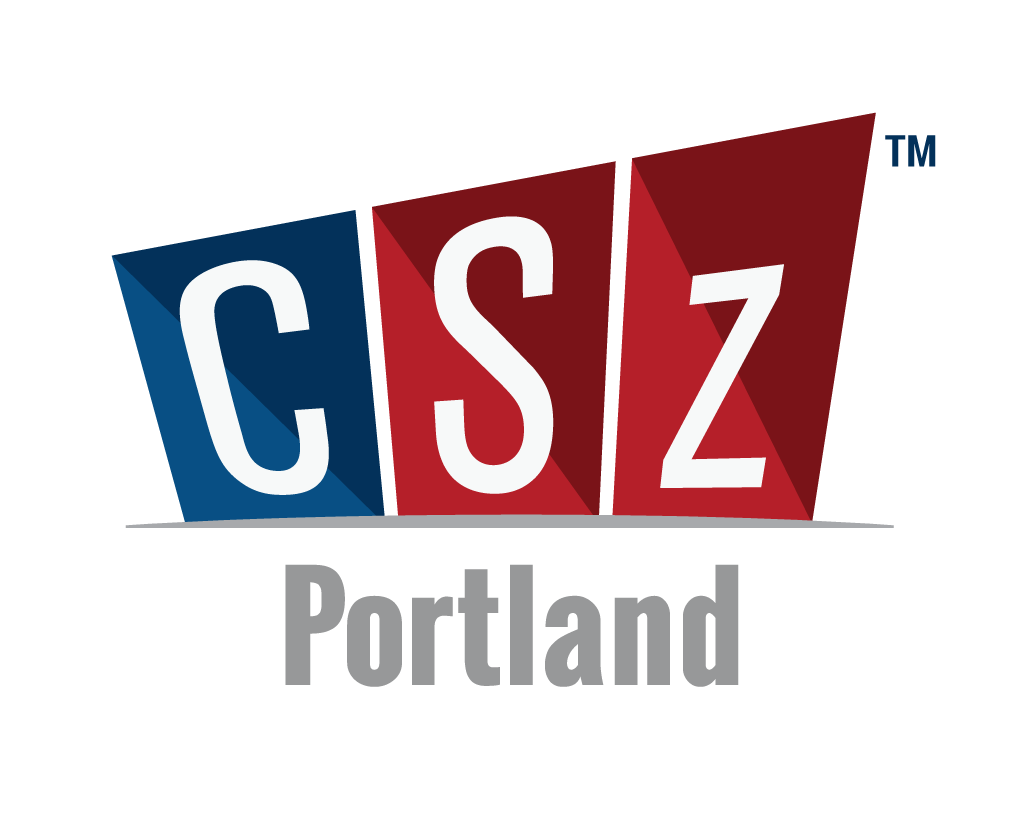10 Disadvantages of Applied Improv Training for Your Company
Let's set the scene.
YOU are excited to bring in our company to provide improv-based training in Customer Service, Leadership, Design Thinking, Team Building or Communication Skills. You've heard some great things, it looks good on the web, and our conversations have helped you shape some meaningful goals.
And then:
The naysayers start in. It's too terrifying, risky, too touchy-feely, it puts people on the spot, it's abstract, interactive, fun; it's play; it's not serious. Worst of all, it's UNKNOWN.
Let's talk.
It's Terrifying.
Anything you've never done before has an element of terror in it. We understand that. Part of our introduction addresses this. You can sit out of any exercise that you are physically or emotionally uncomfortable participating in. You just can't lure anyone else out or comment on what you haven't done. Fair?
It's Risky.
Anything valuable is a risk at some level. But what are you actually risking? A few hours of your team's time? That's valuable. Your reputation? Maybe, but take a look at the list of clients we've served (and it's a very partial list). Every time we engage with a new client, there is risk for us as well, but we are competent enough to take the risk. You are, too.
It's Touchy-Feely
As our owner, GM and lead facilitator, I guide all of CSz Portland's business training offerings. This next bit may surprise you: I hate touchy-feely stuff in professional settings. While we aren't sitting at tables watching Powerpoints, we're not into creepy activities, either. There's a balance between fun and weird, and we tilt heavily toward the fun. I am as inspired by sports teams as I am by the theatre. We're different, and we're safe.
It's On The Spot
Many people associate improvisation with performance and comedy. This is improvisation APPLIED to business. We don't make people perform in our workshops (with very few exceptions, cleared with you beforehand, almost always during advanced work). No one will be put on the spot.
It's Abstract
So are concepts like accounting and marketing, until we decide what they mean. Everything we do is tied to your goals during our reflections. Your team decides what the exercises mean. At a recent Nike workshop, a participant (in the final reflection) said, "I was blown away with how each game was a metaphor for the things we face [at work]."
It's Interactive
Trust your team. We do. It turns out that most people are really smart (and also kind) when given the opportunity to learn in ways that they help control. Education as a top-down model is changing. We're part of that.
It's Fun
How much do you remember from in-class education from your K-12 or even college years? How much do you remember field trips, after-school clubs, drama, music and sports? I think I've made the point. Fun is learning.
It's Play
As children, most of our learning about teamwork and communication came from play. Adults don't get enough of a chance to do this - we're always putting people in leagues, keeping standings and setting up competitions. In Applied Improv, we play. Everything has meaning, and every moment is a fantastic opportunity to learn.
It's Not Serious
We're very serious about what we do. People "play" sports. Think they can't be serious about it? Of course, they can. We find the balance - our work is fun, and we take the meaning and value seriously.
It's Unknown
This ought to scare you (if you've read this far).
We always prepare diligently for our engagements and create syllabi for each client.
In 30 years, I've followed a syllabus point by point maybe 5 times. What happens is that each engagement reveals what is needed to us, and, keeping the goals in mind, we change our plans constantly.
In other words, we don't know exactly what's going to happen, either! We only know that we are competent to improvise within our prepared frame and that every client discovers important things along the way.
Does this give you the ammunition you need to survive the gauntlet of NO?
If it doesn't, please contact me and I will help.
Based on a presentation by Drew Tarvin - the 10 Disadvantages are his; the replies are mine. Here is Drew's presentation to AIN2016 on this very subject!

